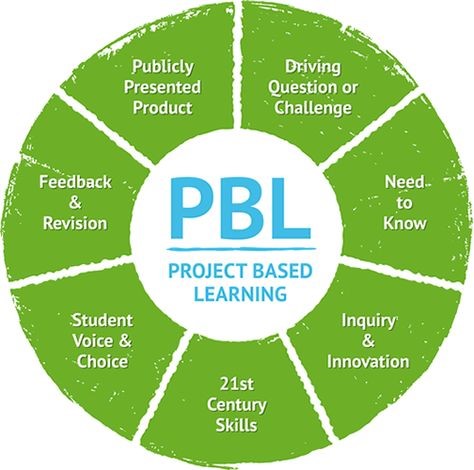Project Based Learning with Technology
Preparation:
The course provider will send to the participants a list of materials related to the course topic that they can read in order to prepare for the course. The course provider keeps in touch with the participants and tailors the course according to their specific needs. The course provider offers support if the participants need any information related to accommodation, plane tickets or other details necessary in organising the course.
Course description
Most of the times, the lessons in the syllabus follow a logical order and a theme for each unit, but they still seem disconnected to the lessons which are studied the next week. Students fail to see the connection between units or the relevance of some lessons to the world around us. Project Based Learning is a method that brings together teachers of different subjects to plan a sequence of lessons during which the students try to find a solution to a real-life problem. Thus, for a problem like: ‘how can you survive on an island’ teachers of geography, biology, mathematics, English, ICT can work together to guide the students to find solutions to this situation. The steps of finding a solutions are different lessons in which students study the location of that island, it’s climate, animals and plants, can draw maps or read maps, can calculate distances, design shelters, plan survival solutions ahead, etc.
What do students learn while finding a solution to this problem? Besides the obvious Math, Geography, Biology, English, etc. the students work cooperatively to research information, analyse it and use some of it in order to plan ahead and find solutions. These are core skills that we aim to teach our students in the 21st century: cooperation, critical thinking, research skills, creativity.
ICT / New Technologies play an important role in this method because apps, channels, blogs, vlogs, and sites are sources of information during the research stages. Moreover the final product of a Project Based Learning course can be a media product or a presentation, which, again, makes ample use of technology.
During this course the participants will get to understand the stages of planning a lesson and then a course using this method and will be familiarized with useful apps and sites that can help them and their students when studying. There will be examples of good practices and practical activities on how to develop the core skills needed for PBL: research, collaboration, creativity, communication. Self-assessment grids and reflection tools will be provided and discussed for a standardized approach. Participants will also get creative project ideas and will come up with their own ideas for problems which are specific to their community or school.
Methodology:
The methodological techniques include:- Team – Building Sessions;
- Role – Play
- Ice – Breaking and Warm – Up Sessions;
- Energisers
- Group Discussions;
- Debates;
- Questioning;
- Goal – Setting sessions;
- Brainstorming;
- Questionnaires
- Getting familiarized with the PBL method
- Trying out apps and sites used in the classroom
- Becoming aware of core 21st century skills and trying activities which promote them
- Analysing descriptors for assessing the development of the core skills in your students
- Becoming aware of different patterns of co-teaching
- Planning lessons and finding ways of implementing PBL to your context of teaching
- Understanding advantages and disadvantages of PBL
- Finding ideas of projects that can be applied in your context of teaching
- Planning a lesson / sequence of lessons with PBL
- Having a set of apps and sites useful for you and your students
- Getting practical ideas of how to develop 21st century skills in your students which are related to using PBL
- Networking with teachers from various European countries
- Improvement of language and communication skills
- Increased capacity to cooperate on international level
Follow-up
Trainees will be given soft and hard copies of all lesson materials, which they can present to their colleagues at their own organizations to generate interest in the strategies learnt during the training course. In addition, a mailing list of participants will be created in order to exchange ideas/experiences. Self-evaluation materials will be provided. At the end of the course the participants will fill in a questionnaire in order to get a detailed feedback for the effectiveness of the training event.
Programme of training activities day-by-day:
Day 1 – MONDAY
- Welcome and registration;
- 21st century skills
- What is PBL?
- Advantages of implementing PBL
Day 2 – TUESDAY
- PBL and related methods: TBL (Task Based Learning) and IBL (Inquiry Based Learning)
- Creative project ideas
Day 3 – WENDESDAY
- Examples of PBL lessons
- How to introduce PBL in your classes
- Plan a lesson
Day 4 – THURSDAY
- Online resources for learning
- How to introduce PBL in your curriculum
- Planning a course
Day 5 – FRIDAY
- Co-teaching: Team up with teachers of other subjects
- Possible problems with PBL - what should the teacher do?
- Address every student’s needs - differentiating instruction strategies for PBL
Days 6/7 – SATURDAY and SUNDAY Workshops and Cultural/Sightseeing Activities
Day 8 – MONDAY
- Monitoring students’ progress during the project: Reflection charts for teachers and students
- Introduce research skills to your students
- Activities and apps to develop critical thinking
Day 9 – TUESDAY
- Experiential instruction
- Activities and apps to develop teamwork and communication
- Beyond your school: steps to start an international collaboration project
Day 10 – WEDNESDAY
- Assessment for learning - how to evaluate my students’ work?
- Activities and apps to introduce formative assessment
- Evaluation of the course
- Awarding certificates






